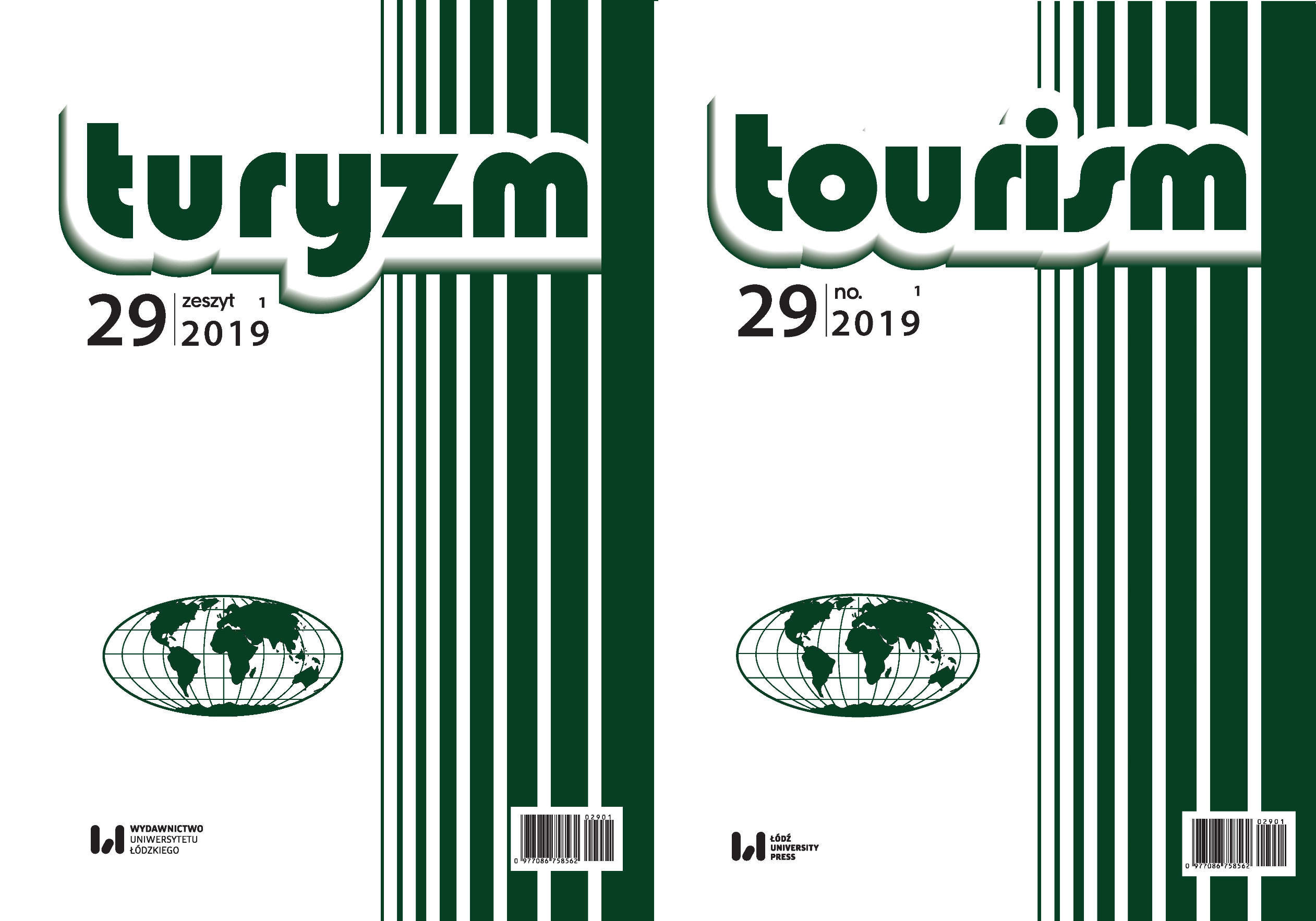Escape rooms in Poland: A demand-led approach using ‘netnographic’ research
DOI:
https://doi.org/10.2478/tour-2019-0008Słowa kluczowe:
free time, forms of recreation, escape rooms, experience economyAbstrakt
During five years of extremely rapid and spontaneous development, escape rooms have become a permanent component of Polish urban space. At the same time, this form of recreation has gained a whole community of enthusiasts. The aim of the article is to present a comprehensive description of the people who visit escape rooms in Poland through an online survey including 718 users of lockme.pl, the largest promotional and booking portal in the country. The results have enabled the author to identify the socio-demographic features of the players, sources of information about escape rooms, user motivations, the frequency, character and course of visits, the emotions accompanying the game, as well as general opinions and evaluations of Polish escape rooms.
Pobrania
Bibliografia
Csikszentmihalyi, M. (1990). Flow: The psychology of optimal experience. New York: Harper and Row.
Google Scholar
Dilek, S.E., Dilek, N.K. (2018). Real-life escape rooms as a new recreational attraction: The case of Turkey. Anatolia, 29 (4), 1-12. DOI: 10.1080/13032917.2018.1439760.
Google Scholar
Lockme Deutschland. Retrieved from: https://lockme.de (28.03.2019).
Google Scholar
Lockme Österreich. Retrieved from: https://lockme.at (28.03.2019).
Google Scholar
Lockme Polska. Retrieved from: https://lockme.pl (28.03.2019).
Google Scholar
Lockme Schweiz. Retrieved from: https://lockme.ch (28.03.2019).
Google Scholar
Lockme United States. Retrieved from: https://lock.me (28.03.2019).
Google Scholar
Kolar, T. (2017). Conceptualising tourist experiences with new attractions: the case of escape rooms. International Journal of Contemporary Hospitality Management, 29 (5), 1322-1339. DOI: 10.1108/IJCHM-12-2015-0687.
Google Scholar
Kolar, T., Čater, B. (2018). Managing group flow experiences in escape rooms. International Journal of Contemporary Hospitality Management, 30 (7), 2637-2661. DOI: 10.1108/IJCHM-03-2017-0152.
Google Scholar
Kubal, M., Pawlusiński, R. (2016). Escape rooms – nowe zjawisko w przestrzeni turystycznej Krakowa. Annales Universitatis Paedagogicae Cracoviensis Studia Geographica, 221, 244-258.
Google Scholar
Nicholson, S. (2015). Peeking behind the locked door: A survey of escape room facilities. White paper retrieved from: http://scottnicholson.com/pubs/erfacwhite.pdf (28.03.2019).
Google Scholar
O poprzednich edycjach PolandEscape. Retrieved from: https://polandescape.com/poprzednie-edycje (28.03.2019).
Google Scholar
Plutchik, R. (1980). Emotion: A psychoevolutionary synthesis. New York: Harper and Row.
Google Scholar
Rynek EscapeRoom w Polsce. Raport (2018). Retrieved from: https://lockme.pl/userfiles/files/RynekERwPolsce_raport.pdf (28.03.2019).
Google Scholar
Są wyniki kontroli w escape roomach. 9 na 10 z nieprawidłowościami. Są nowe przepisy (2019). Retrieved from: http://wiadomosci.gazeta.pl/wiadomosci/7,114883,24352499,sa-wyniki-kontroliw-escape-roomach-dziewiec-na-dziesiec-obiektow.html#s=BoxOpImg1 (28.03.2019).
Google Scholar
Stasiak, A. (2016). Escape rooms – a new offer in the recreation sector in Poland. Tourism/Turyzm, 26 (1), 31-47. DOI: 10.1515/tour-2016-0003.
Google Scholar
Stasiak, A. (2019). Przestrzeń turystyczna jako przestrzeń doświadczeń. Prace i Studia Geograficzne, 64.1, 61-87.
Google Scholar
Wiliams, A. (2002). Understanding the hospitality consumer. Oxford: Butterworth-Heinemann.
Google Scholar
Pobrania
Opublikowane
Jak cytować
Numer
Dział
Licencja

Utwór dostępny jest na licencji Creative Commons Uznanie autorstwa – Użycie niekomercyjne – Bez utworów zależnych 4.0 Międzynarodowe.










